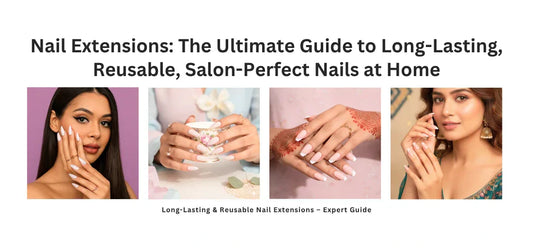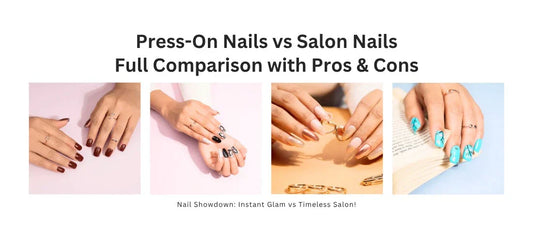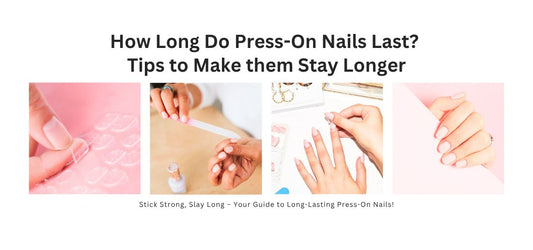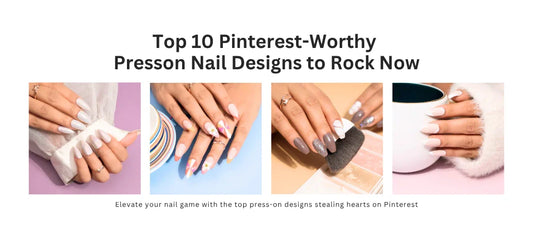
Types of Fake Nails: Acrylic, Gel, Wraps & Other Artificial Nails
In recent years, the popularity of fake nails, also known as artificial nails, has increased. They provide a convenient method to attain stylish and well-groomed nails without waiting for natural nails to grow long and strong. The market offers several types of fake nails, each boasting unique features and benefits (Types of Fake Nails: Acrylic, Gel, Wraps & Other Artificial Nails). This article will delve into various fake nail types, such as acrylic, gel, wraps, and other artificial nails. Additionally, we will address some frequently asked questions to assist you in selecting the most suitable option for your needs.
Deciphering Styles: A Comprehensive Exploration of Artificial Nail Types
"Explore Nail Aesthetics with this Guide to Extensions, which includes popular choices like acrylic, gel, wraps, and others. This guide serves as a valuable compass, enabling individuals to enhance their style with various extension types confidently."
What Are Fake Nails?
"Artificial extensions, known as fake nails, enhance the length and shape of your natural nails, catering to various nail types. These extensions, typically crafted from materials like acrylic, gel, silk, or fiberglass, allow application either at a nail salon or in the comfort of your home. You can apply them using pre-made nail tips or sculpt them directly onto your natural nails."
Different Types of Fake Nails
1. Acrylic Nails
"People have been using acrylic nails, the most common type of fake nails for decades. To create various nail extension types, one combines a liquid monomer with a powder polymer, resulting in a strong and durable coating when applied to the natural nail bed. Acrylic nails offer the flexibility to easily shape and lengthen, allowing for a variety of nail designs. While they are known for their longevity, maintaining their fresh appearance requires regular maintenance and infills."
2. Gel Nails
"Gel nails are another popular type of fake nails that offer a more natural and lightweight feel, catering to various nail extension types. They are created by applying a gel-based product onto the natural nails and then curing them under an ultraviolet (UV) lamp. Gel nails give a glossy finish and have a flexible texture that closely mimics the feel of natural nails. They are less likely to chip or break compared to acrylic nails but may require more frequent salon visits for maintenance and removal."
3. Wrap Nails
Create wrap nails, also known as silk or fiberglass nails, by applying thin layers of silk or fiberglass material onto the natural nails. Secure these layers with resin or glue to produce a strong and durable overlay. Wrap nails offer a suitable choice for individuals with weak or damaged nails, providing additional strength and support. They are less bulky than acrylic or gel nails and are easy to maintain.
4. Other Artificial Nails
"In addition to acrylic, gel, and wrap nails, there are other artificial nail options available in the market, expanding the spectrum of nail extension types. These include press-on nails, glue-on nails, and nail stickers. Press-on nails come in various designs and can be easily applied at home without the need for salon visits. Glue-on nails are similar but require nail glue for application. Presson Nails are a great temporary option, offering a wide variety of designs that can be easily applied and removed."
Frequently Asked Questions
Q: How long do fake nails last?
A: The lifespan of fake nails depends on the type you choose, as well as personal factors such as lifestyle and care. Typically, Nailknack press nails can last three to four weeks.
Q: Are fake nails damaging to natural nails?
A: When properly applied and maintained, fake nails should not cause significant damage to natural nails. However, improper application or removal can lead to nail thinning, weakening, or even infections. It is essential to follow proper nail care techniques and seek professional help when needed.
Q: Can I do everyday activities with fake nails?
A: Yes, you can perform everyday activities with fake nails, but it is essential to exercise caution. Avoid using your nails as tools, as this can lead to breakage or damage. Also, be mindful when handling harsh chemicals or excessive moisture, as these can weaken the adhesion of the fake nails.
Q: Conclusion: Which Fake Nail Should I Get?
Choosing the right type of fake nails depends on your personal preferences, lifestyle, and nail health. Acrylic nails are a classic option for versatility and durability. Gel nails offer a more natural look and feel. Wrap nails provide additional support for weak or damaged nails. And, there are other artificial nails available for temporary designs or easy application at home. Take into account your desired nail length, maintenance requirements, and potential allergies when making your decision.
Ultimately, it is essential to ensure proper application and maintenance of your chosen fake nails to keep them looking flawless and to avoid any potential damage to your natural nails.








